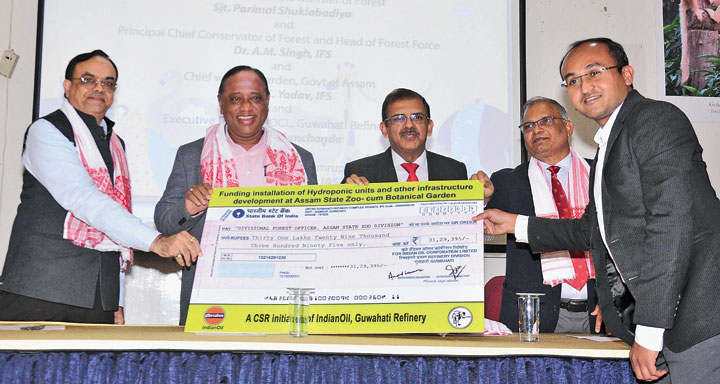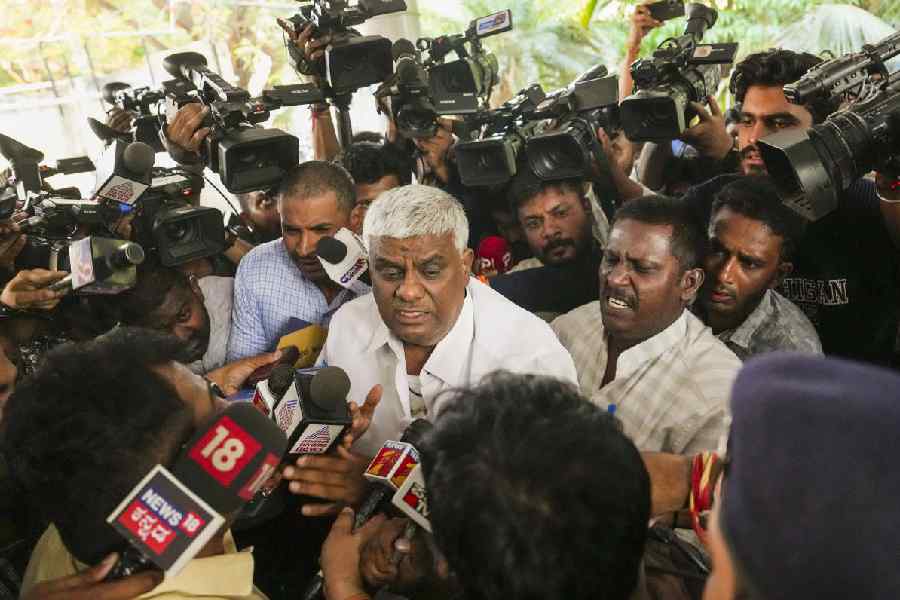The Assam State Zoo and Botanical Garden and Guwahati Refinery have signed a memorandum of understanding (MoU) for hydroponic farming system as part of a corporate social responsibility (CSR) here on Thursday.
Hydroponic farming is a soil-less gardening system. Seeds are sown on mineral-rich water solution instead of soil for the plants to grow.
Indian Oil Corporation Limited (IOCL), Guwahati Refinery, executive director Sanjay Manchanda handed over a cheque for Rs 31,29,395 to zoo divisional forest officer Tejas Mariswamy on the occasion.
“This initiative is unique as we have blended nature with science. As the zoo is located in the heart of the city, procurement of fodder for animals becomes difficult. With this hydroponic system, fodder for the animals will be easily available. Moreover, the grass produced in the system will be more nutritious,” state forest minister Parimal Suklabaidya said.
Manchanda said Guwahati Refinery was honoured to be a part of the initiative and hoped for more such initiatives in the future. “IOCL is concerned about the environment. Yesterday, we planted 400 trees in different parts of Assam.”
The farming system consists of two containers with seven trays each which hold the water.
It is expected that hydroponic farming will produce 1,200kg of fodder grass daily, 600kg in each container.
Water, sunlight and nutrients help the plants grow like the traditional way of growing on soil.
“Currently, we are feeding herbivorous animals a combination of leaves and grass. Fodder grass in large quantities is difficult to get on a daily basis. The hydroponic farming system will help us a great deal, as it will help produce more than 1,000kg fodder grass per day. Fodder grass is important for the health and growth of herbivores,” Mariswami told The Telegraph.
The farming system will be spread over 600 square feet and operated electrically.
There are around 450 herbivores in the zoo.
Chief wildlife warden M.K. Yadav, principal chief conservator of forest and head of forest force A.M. Singh and other forest employees were present at the event.










